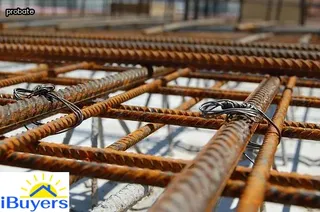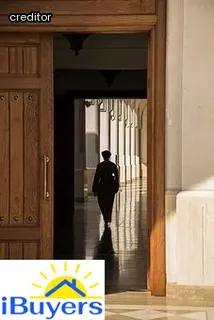The probate process is an important part of estate planning and can be especially complicated for real estate in South Carolina. Probate is the legal process of transferring a deceased person's assets to their heirs or beneficiaries, and it must be completed before any property can be distributed.
In order to understand the probate process in South Carolina, it is necessary to know the different types of probate proceedings that may apply. Small estates with fewer assets may qualify for Summary Administration, while more complex estates will require General Administration.
During the General Administration process, a personal representative must be appointed who is responsible for managing the estate and ensuring all debts are paid before distributing assets to heirs or beneficiaries. Additionally, any non-probate assets such as life insurance policies need to be identified and distributed separately from the probate estate.
The court also has an important role in approving transfers of real property during the probate process, so it is essential that all paperwork is properly filed with the court. Understanding these steps can help simplify the probate process when dealing with real estate in South Carolina and ensure a smooth transition of ownership after a loved one’s passing.

The probate process can be an intimidating and complex ordeal, but it is a necessary part of the real estate transaction process in South Carolina. While it may seem like a hassle, there are actually some key benefits associated with going through the probate process.
For starters, probate provides heirs with legal protection that ensures the wishes of the deceased are carried out. It also serves to protect the interests of creditors by making sure all outstanding debts are paid off before any assets can be distributed.
Additionally, going through the probate process allows for proper asset management and record-keeping. This helps to ensure that all funds are properly tracked and accounted for during the distributional period.
Finally, probate provides an opportunity to resolve any disputes that might arise over the estate without costly litigation. By taking advantage of these benefits, families can rest assured that their loved one's affairs will be managed responsibly and in accordance with their wishes.
The probate process for real estate in South Carolina can involve many different kinds of property. Generally, any real estate owned solely by the deceased is subject to probate.
This includes houses, land, and other such property. If the deceased had a mortgage on their property, it will also need to go through probate so that it can be paid off and the title released.
In addition to residential properties, commercial properties may also be subject to probate if they are owned solely by the departed owner or co-owned with another person who has since passed away. Furthermore, any property that was acquired during the course of marriage in South Carolina is usually considered marital property and thus may be subject to probate as well.
It is important for those involved in the process to understand what kind of property is subject to probate in order to determine how best to handle any assets left behind by the deceased.

In order to initiate the probate process for real estate in South Carolina, you must first petition the court by filing a death certificate and a will (if there is one). Next, the court will appoint an executor or administrator.
This person is responsible for managing the decedent's estate and carrying out the instructions of the will. The executor or administrator will then be responsible for gathering all assets, paying any debts and taxes, and distributing any remaining assets according to the terms of the will.
During this time, it is important to keep detailed records of all transactions so that they can be documented as part of the probate process. Additionally, you may need to obtain court approval before selling any real estate belonging to the decedent's estate.
Lastly, once all debts have been paid and all assets have been distributed, you must file a final accounting with the court in order to close out the probate process.
Contesting a will in South Carolina involves filing a petition in the probate court of South Carolina, which is a formal legal process. When contesting a will, it is important to remember that the law requires that an interested party must have a valid reason for objecting.
Common reasons for contesting a will include incorrect execution of the document, lack of mental capacity at the time of signing, undue influence, or fraud. It is also possible to challenge the validity of the will if it was not properly witnessed or notarized.
In addition to filing the petition in probate court, you may need to provide evidence and testimony that supports your claim. The probate court judge will review all evidence and testimony before making a final decision on whether or not to uphold the contested will.

Working with a knowledgeable attorney can make the probate process for real estate in South Carolina much simpler and less stressful. An attorney is able to explain the legalities of the process, as well as help you navigate the paperwork and court proceedings.
They can also inform you of any filing deadlines, provide guidance on important decisions, and represent your interests in court if necessary. Furthermore, they can handle any disputes that may arise during the probate process and advise you regarding any tax issues associated with transferring real estate assets to beneficiaries.
With an experienced lawyer on your side, you have someone who is familiar with probate law and will protect your rights throughout the entire process.
The probate process for real estate in South Carolina is contingent upon the type of probate being used. There are three main types of probate proceedings in South Carolina: regular probate, summary probate, and small estate affidavit.
Regular probate is the traditional method used to settle an estate, regardless of the size. It requires a court order to transfer assets from one party to another, which can be costly if there is a lengthy dispute.
Summary probate is a much faster process that does not require court involvement and can be used when the value of the estate is below a certain threshold. The third type of probate available in South Carolina is small estate affidavits, which allow an individual to transfer property without involving the court if the total value of the assets is under a certain limit.
Understanding each option and its associated requirements when dealing with real estate in South Carolina will help ensure that everything goes as smoothly as possible.

The probate process in South Carolina is subject to a variety of tax implications, such as inheritance taxes and estate taxes. When an individual passes away and leaves real estate in South Carolina, the executor of their estate must go through probate court before the real estate can be transferred to the heirs.
During the probate process, a number of taxes may have to be paid before any assets are distributed. Inheritance tax is applied to those who are receiving assets from an estate.
In South Carolina, inheritance tax is only applicable if the heir is not related to the deceased by blood or marriage. Estate taxes are also imposed on estates worth more than $1 million dollars in South Carolina, and must be paid before any real estate can be transferred out of the deceased's name.
It is important for individuals considering real estate transactions as part of their estate plan to properly understand all applicable tax implications that come with probate in South Carolina so they can make informed decisions about how best to proceed.
A guardian may be necessary during the probate process in South Carolina if the decedent was a minor or an incapacitated adult. In these cases, a court-appointed guardian will manage the estate until it is administered according to the terms of the deceased person’s will.
If there is no will, then a guardian may be appointed to represent the interests of any minor children or other dependents who are beneficiaries of the estate. The court must approve of any guardian that is appointed and it is their responsibility to ensure that all assets are liquidated and distributed according to state law or as stated in a valid will.
In cases where there are multiple heirs, this process can be especially complicated and time consuming as disputes over assets may arise between family members. It is therefore important to understand how guardianship works within the probate process in order to ensure that all legal requirements have been met and that any potential complications are resolved quickly and efficiently.

When dealing with the probate process for real estate in South Carolina, it is important to understand what to do with a deceased person's unpaid debts. It is important to recognize that this debt will still need to be paid, and if there are not enough assets within the estate to cover the debt, then creditors may try and put a lien on the property.
In situations where the deceased person was the sole owner of the property, it is likely that creditors will want their money before they allow anyone else to take ownership of it. As such, it is important to determine whether or not there are enough assets in the estate to cover any outstanding debts prior to claiming ownership of the property.
If not, it may be necessary to negotiate with creditors or file for bankruptcy protection on behalf of the estate.
An executor is an individual named in a will to handle the deceased's assets and debts. During the probate process, an executor must understand how to handle life insurance claims, as this can be a complex process.
Generally, life insurance proceeds are paid out directly to a beneficiary and are not subject to probate. However, if there is no named beneficiary or if the beneficiary is deceased, then the proceeds may become part of the estate and go through probate.
The executor must then review applicable policies to determine who should receive the funds and submit any necessary paperwork required by each insurer. They will also need to determine if any taxes or fees should be deducted from the payout.
It is important for an executor to be aware of state laws that may affect their duties when handling life insurance claims during probate in South Carolina.

When someone dies without a will, they are said to have died “intestate”. In this situation, the South Carolina probate court must decide who should receive the deceased person’s property.
Generally speaking, the law of intestacy determines who is entitled to inherit from an estate in South Carolina. The surviving spouse is typically the first one in line for inheritance if there are no children.
If there are children, then the spouse can receive a portion of the estate and the remaining portion will be divided among all of the children. If there is no spouse or children, then parents may be entitled to inherit from their deceased child's estate in South Carolina.
If there are no parents either, then siblings may become heirs under intestacy laws in South Carolina. If none of these relatives can be found, then aunts and uncles or more distant relatives could be considered as potential heirs.
It is important to note that creditors also have a right to receive payment from an intestate estate before any beneficiaries do.
In South Carolina, when someone dies without having a will, their property is distributed according to the state's laws of intestate succession. This means that the state has predetermined how assets are divided among family members and other relatives.
Generally, if a deceased person is survived by their spouse and children, the surviving spouse receives all or a portion of the estate. If there is no surviving spouse, then the estate is divided among the children in equal shares.
In cases where there are no surviving spouses or children, then assets may be distributed to parents or other relatives in accordance with South Carolina law. The probate process for real estate can become complicated if an individual passes away without having a will in place or if there are disputes between family members regarding who should receive what portion of an estate.
It is important to understand intestate succession and how it works within South Carolina courts so that you can ensure any disputes regarding your loved one's estate are resolved promptly and fairly.

The probate process for real estate in South Carolina can be complex, especially when an estate is insolvent. When an estate is insolvent there are several options available to the personal representative of the estate.
First, they must determine if any assets exist in the estate that could be sold or liquidated to satisfy any debts or liabilities. If sufficient funds are not generated from such sales, then creditors may need to take further action.
In some cases, creditors may file a claim with the court seeking restitution against the personal representative. If these claims are approved by the court then funds will be distributed in accordance with state law.
Additionally, certain assets of the deceased may have to be sold at auction in order to satisfy debts and liabilities. Ultimately, it is up to the personal representative of the estate to follow all legal procedures necessary when dealing with an insolvent estate during a probate process in South Carolina.
In the state of South Carolina, it is possible for the beneficiaries of an estate to dispute its distribution after it has been settled by the court. When a person passes away and leaves behind real estate, the probate process is triggered.
This process involves gathering up all of the assets, paying off any debts or taxes that are owed, and then distributing what remains among the heirs according to the will or intestacy laws. In some cases, one or more of these beneficiaries may feel that they have not received their fair share and decide to take legal action to challenge the distribution.
Such disputes can be complex and time-consuming, so it is important for those involved to understand all aspects of this process before making any decisions. Understanding how courts typically handle these post-probate disputes can help ensure that everyone receives what they are entitled to in a timely manner.

In South Carolina, there are different rules for non-probating estates. This differs from the probate process for real estate since no court action is taken in non-probate transfers.
Non-probating estates generally involve transferring property outside of probate, such as joint tenancy or beneficiary designations. This can be done through a deed transfer or other written document.
If a will is involved, it must be filed with the county probate court to initiate the probate process. For non-probate estates, however, this step is not required and the property passes directly to the designated beneficiary without court involvement.
In order to avoid probate in South Carolina, certain transfers must meet certain criteria established by state law. Furthermore, if any portion of an estate is left to multiple beneficiaries or if there are disputes among heirs regarding how an estate will be divided, then this would require going through the probate process regardless of whether some assets are transferred outside of it.
Contested wills can be a difficult process for those involved in the South Carolina real estate probate process. In most cases, if a will is contested, the courts must make a decision regarding the validity of the will.
If it is determined that the will is valid and legally enforceable, then it will be accepted and enforced by South Carolina law. However, if there are issues with the validity of the will or its contents, then it may be invalidated or amended in order to comply with state laws.
If a dispute arises between heirs as to who should receive what portion of an estate, then a court may appoint an administrator to oversee the distribution of assets. Additionally, disputes can arise over whether certain assets should be included in an estate or not.
When these types of disputes occur in South Carolina courts they are considered complex matters and require knowledgeable legal counsel to help ensure that all parties involved receive fair representation during proceedings.

Understanding the probate process for real estate in South Carolina can be complicated, but when a spouse dies it is important to know if their share of the estate can be received without going through full probate. In South Carolina, surviving spouses are granted certain rights that allow them to receive their part of the estate without going through the complex process of probate.
A surviving spouse can typically either receive their shares in an outright distribution or through a trust. If the deceased had a will, the surviving spouse may be able to bypass probate depending on how the will is written and if there are any restrictions set by law.
In addition, if there is no will and only one heir, they may also be able to bypass probate as long as they comply with all requirements set forth by state law. The best way to avoid having to go through full probate is to consult with an experienced attorney who can ensure that all legal steps have been taken correctly and that all necessary documents have been filed.
In South Carolina, beneficiaries of an estate are entitled to certain rights and protections during the probate process for real estate. The Executor of the estate is responsible for ensuring that all creditors of the deceased are paid from estate funds and that all assets are properly distributed to named beneficiaries.
Beneficiaries have a right to be informed of the details of the probate process, including when it will begin and how long it is anticipated to take. Beneficiaries also have a right to be kept informed about any changes or delays in the proceedings and must be notified if their inheritance has changed in any way.
Additionally, beneficiaries can object to any proposed actions by the Executor that they feel are not in line with their interests or those of the deceased. If there is a dispute between beneficiaries regarding the distribution of assets, they can request mediation or seek legal advice as necessary.
Understanding your rights as a beneficiary in South Carolina will help ensure you receive your fair share of an estate's real property following probate.

The laws in South Carolina regulate how donations are made during the lifetime of a deceased person by determining which assets are subject to probate and who is entitled to receive them. When a person passes away, all of their remaining assets must pass through the probate process before being distributed to their beneficiaries.
This includes any real estate or other property that was owned in South Carolina at the time of death. In order to legally transfer ownership of these assets, they must be accounted for in the probate court system.
The court will determine which assets are eligible for donation and who should receive them. In some cases, the deceased may have left instructions for how their possessions should be distributed or donated after their death.
These instructions can also be taken into consideration when determining who will receive which assets from the estate. It is important to understand that any donations made during the lifetime of a deceased person must comply with South Carolina law in order to ensure that they are valid and binding.
Yes, real estate goes through probate in South Carolina. When a person dies owning property in the state, their estate typically must go through the probate process to be legally transferred to another person or entity.
Probate is a legal process that involves proving the validity of a decedent's will, if one exists, and identifying and inventorying the decedent's assets. In South Carolina, an executor or administrator must be appointed by the court to manage the affairs of the estate during probate.
This includes locating and collecting all of the decedent's assets as well as notifying creditors and paying any debts outstanding against them. Once all debts have been paid and all assets collected, they are then distributed according to either state law or the terms of a valid will.
The court oversees this entire process to ensure that everything is handled properly and all parties are treated fairly. Understanding how real estate passes through probate in South Carolina can help make sure that your loved ones' wishes are honored after they pass away.

Yes, you can sell a house while in probate in South Carolina. The probate process is an important legal step when transferring property ownership from one person to another.
In the state of South Carolina, the laws governing probate are outlined by the South Carolina Probate Code. When real estate is involved in the probate process, there are certain procedures that must be followed to ensure that the transfer of property is done legally and properly.
If a house is sold while in probate, it's important to understand how the sale will be handled and what paperwork must be completed prior to closing. A qualified attorney can provide further guidance on how to navigate this process.
In most cases, an executor or administrator will need to present an order from the court that authorizes them to sell the decedent's property. Additionally, they will need to file all other relevant paperwork related to the sale with the court and make sure that all taxes are paid before closing.
Understanding and following these steps will help make sure that a house can be sold while in probate without any complications or delays.
The probate process can be a complicated and lengthy process - especially when it comes to real estate in South Carolina. To ensure that your property is not subject to probate proceedings, there are several steps you can take.
One of the most effective methods of avoiding probate is to create a Living Trust. A Living Trust is a legal document which names a beneficiary who will receive all assets within the trust upon your death.
Additionally, transferring title of ownership into joint tenancy with right of survivorship or establishing transfer on death designations are also ways to keep your house out of probate in South Carolina. Another option is to gift ownership of the property prior to death, but this must be done carefully as there may be tax implications associated with gifting real estate.
Ultimately, understanding and exploring the various options available for keeping your house out of probate in South Carolina can help you make an informed decision about how best to protect your property.
Probating an estate in South Carolina is a complex process that requires knowledge of the state's probate laws. Understanding the probate process is essential if you are dealing with a deceased person's real estate in South Carolina.
The primary question many individuals have when discussing this issue is whether or not they must go through the probate process to transfer ownership of the real estate. In most cases, the answer to this question is yes.
Probating an estate in South Carolina generally involves filing a petition with the court, notifying any potential heirs and creditors, gathering and valuing assets, paying off any debts and taxes, and distributing remaining assets among heirs according to state law. Although it can be a tedious and time-consuming process, going through probate is often necessary for transferring ownership of real estate located in South Carolina.
A: The probate process for real estate in South Carolina when a will is present involves the executor of the will filing it with the probate court and proving its validity. Then, the executor must identify and inventory all assets owned by the deceased, pay any debts and taxes owed, and distribute assets according to the provisions of the will.
A: An Executor is responsible for carrying out the distribution of a deceased person's real estate assets according to their will. This includes collecting the assets, paying debts and taxes, and distributing the remaining assets to beneficiaries. The Executor must also file necessary paperwork with the court and provide regular updates on progress.